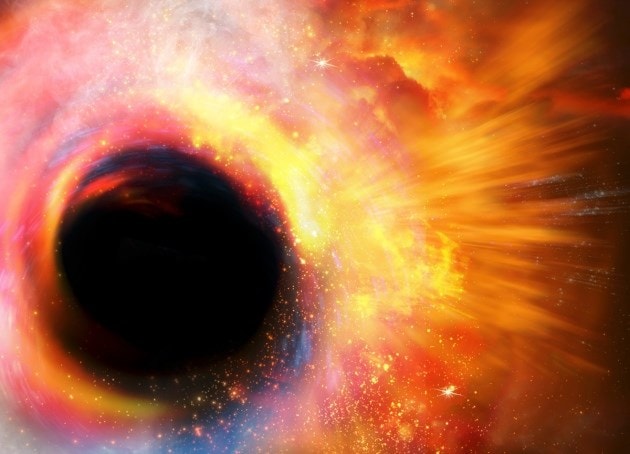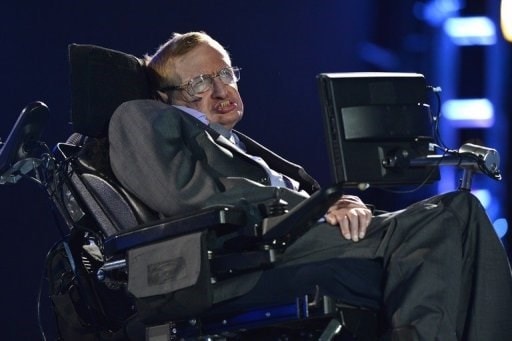Albert Einstein was wrong, there are no black holes in the universe?
British physicist Stephen Hawking, considered the greatest living mind, has shocked the scientific world by reversing his lifelong research to say that black holes do not exist.
The disabled genius has published a scientific paper that completely demolishes modern black hole theory. He says the idea of an event horizon, where light cannot escape, is flawed.
 |
| Graphic image of a black hole in the universe (Source: Nature) |
One of the pillars of physics states that the immense gravitational force created by the collapse of a star would be so strong that nothing could escape its pull. This pillar owes much to Hawking.
But Hawking smashed this idea, saying that instead of having an event horizon like the one above, we should think of a “less clear horizon”. And this idea of his goes against Albert Einstein's views.
He made his point in a paper titled “Information Preservation and Weather Forecasting For Black Holes,” which seems likely to send scientists into a spiral of controversy.
"The absence of event horizons means there are no black holes – which trap light for all eternity," Hawking writes.
He said that light rays trying to escape the center of the black hole would be trapped like they were on a treadmill and would gradually get smaller through radiation.
"In classical theory, there is no escape from a black hole. But quantum theory allows energy and information to escape from a black hole," Hawking told the science journal Nature.
The professor's new hypothesis about so-called gray holes would allow matter and energy to be retained for a certain period of time before being released and returning to space.
The physicist admits his new idea will require a new theory that unifies gravity with other fundamental natural forces. But he adds: "The exact solution remains a mystery."
Hawking's latest work was inspired by a speech he gave via Skype to a meeting at the Kavli Institute for Theoretical Physics in Santa Barbara, California, in August 2013.
He set out to solve the black hole firewall paradox, which has been puzzling scientists for nearly two years. The problem arose from a “thought experiment” in which scientists tried to imagine what would happen if an unlucky astronaut fell into a black hole.
Event horizons are a simple mathematical consequence of Einstein's theory of relativity.
"The picture Hawking paints sounds very plausible," admits black hole expert Don Page of the University of Alberta in Edmonton, Canada.
 |
| Stephen Hawking has polio, but is considered the greatest mind today (Source: AFP) |
But theoretical physicist Joseph Polchinski of the Kavli Institute is skeptical, asserting: “In Einstein’s theory of relativity, black hole horizons are not so different from other parts of the universe. We will never see space and time change abnormally close to us. This phenomenon is too rare on a large scale.”
Raphael Bousso, a theoretical physicist at the University of California, Berkeley, and a former student of Hawking's, admits that many physicists will find Hawking's new work "disgusting."
"The idea that there is no point from which you cannot escape from a black hole is even more extreme and presents more problems than the existing theory of firewalls," he said. "But the fact that we are still discussing such questions, 40 years after Hawking's first studies of black holes and information, is a testament to their enormous importance."
According to VNA






